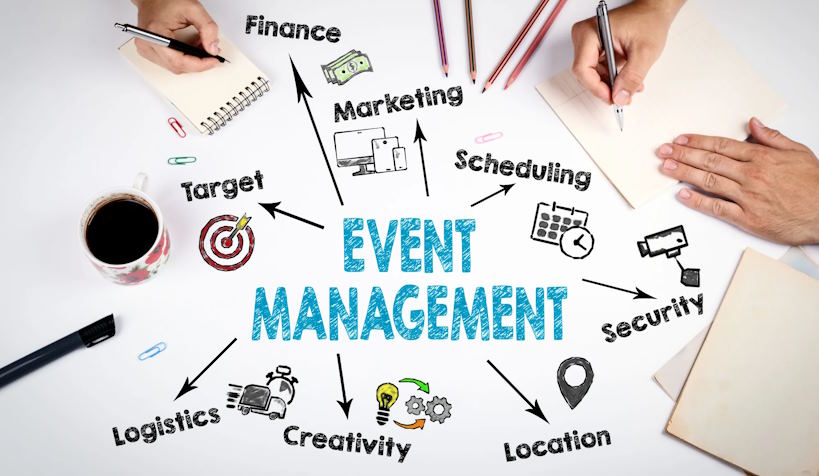Managing Event Logistics: Tips for Efficient Planning

Effective event planning goes beyond conceptualizing creative themes and engaging activities; it hinges on seamless event logistics management. From venue selection and transportation arrangements to staffing and catering, the success of an event relies heavily on efficient planning and execution of logistical elements.
Transportation and Accommodation
Arranging transportation for attendees, if necessary:
Transportation plays a vital role in ensuring that attendees can reach the event venue conveniently. Depending on the event’s scale and location, you may need to arrange transportation services for participants. This could include shuttle buses, car rentals, or even coordinating with local transportation providers. By offering transportation options, you enhance the overall attendee experience and remove potential logistical hurdles.
Coordinating airport transfers and ground transportation:
For out-of-town attendees, coordinating airport transfers is crucial. Research local transportation services and establish partnerships to provide seamless transfers from the airport to the event venue or designated accommodations. Clear communication and providing detailed instructions will help attendees navigate the transportation process smoothly, minimizing any potential confusion or delays.
Booking accommodations for out-of-town guests and speakers:
When planning an event that attracts out-of-town guests or features speakers from different locations, securing suitable accommodations is essential. Consider factors such as proximity to the event venue, amenities, and the overall comfort of the accommodations. Negotiating group rates with hotels can also provide cost-effective options for attendees, making their stay more affordable and convenient.

Staffing and Volunteers
Identifying staffing requirements:
One of the key aspects of successful event logistics is identifying the staffing requirements. Determine the number of staff members needed based on the event’s size, complexity, and specific tasks that need to be accomplished. Consider areas such as registration, information booths, technical support, security, and event coordination. Clearly defining your staffing needs will ensure that you have the right personnel in place to handle various responsibilities.
Assigning roles and responsibilities:
Clear communication is crucial when assigning roles and responsibilities to your event staff and volunteers. Clearly define each person’s tasks, areas of authority, and expectations to avoid any confusion or overlap. Assigning a team leader or supervisor for each functional area can help streamline communication and coordination during the event. Encourage teamwork and collaboration to foster a positive and efficient work environment.

Catering and Refreshments
Menu planning and dietary considerations:
When it comes to event logistics, catering and refreshments play a significant role in creating a memorable experience for attendees. Start by carefully planning the menu, considering dietary restrictions, preferences, and cultural considerations. Offering a diverse range of options ensures that all attendees can find something suitable to their needs. Collaborate with professional chefs or catering experts to create a well-balanced menu that caters to different tastes and dietary requirements.
Choosing reliable caterers or food vendors:
Selecting reliable caterers or food vendors is essential for the success of your event. Research local providers, read reviews, and ask for recommendations to ensure their quality and reliability. Schedule tastings to assess the quality of their food and presentation. Inquire about their ability to handle the anticipated number of attendees and any special requirements, such as buffet setup, food stations, or dietary accommodations.
Coordinating food and beverage service:
Efficient coordination of food and beverage service is crucial to ensure a smooth and enjoyable experience for attendees. Work closely with your chosen caterers or vendors to establish a timeline and logistical plan for food preparation, delivery, and service. Consider factors such as food presentation, flow of service, and replenishment of food stations or beverage stations throughout the event. Regular communication and coordination will help maintain the quality and timeliness of the service.
